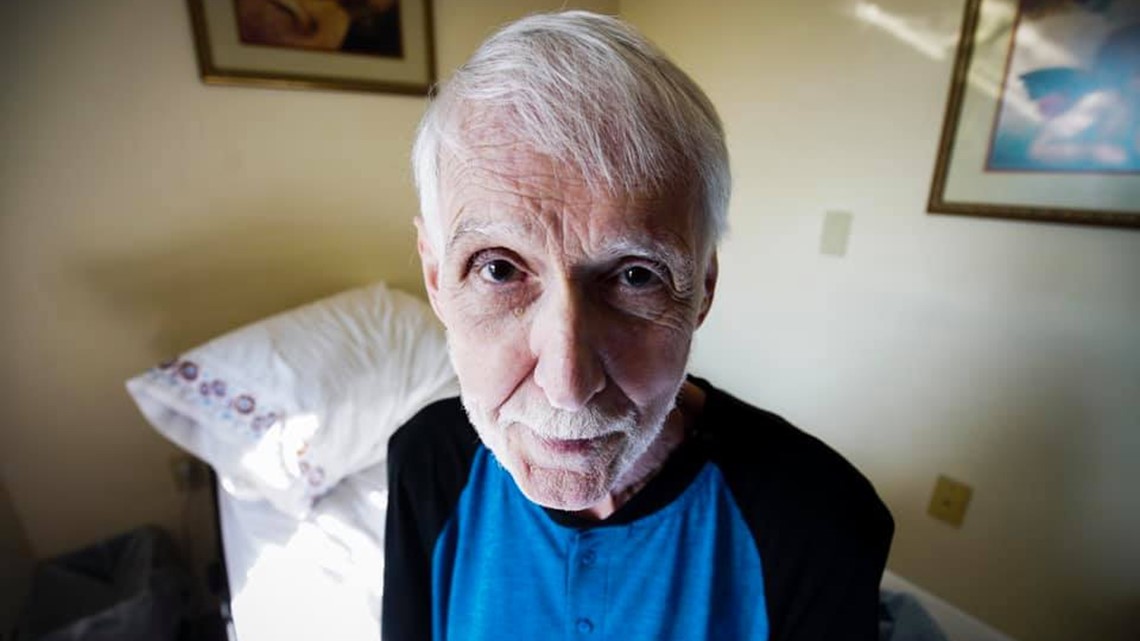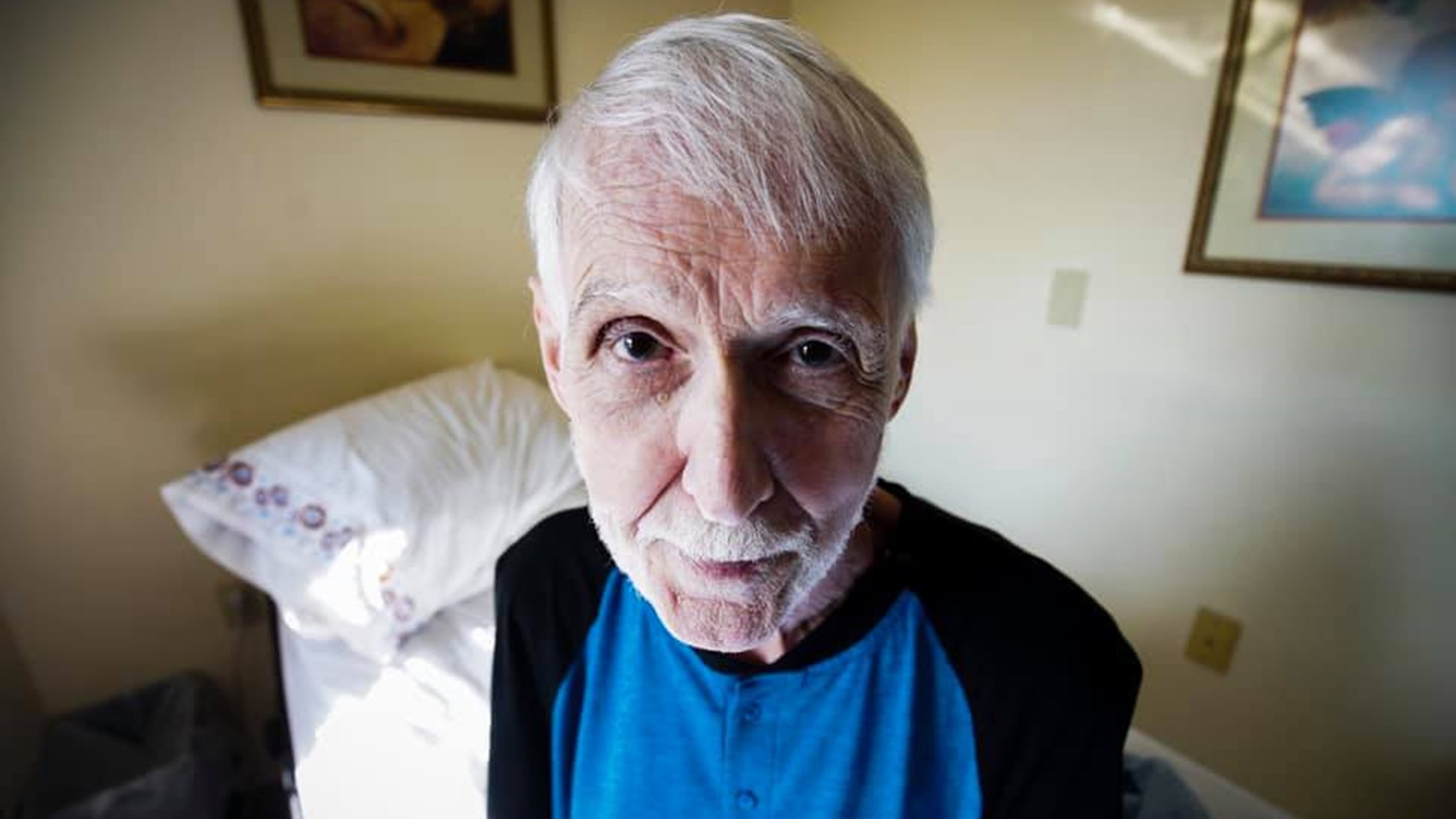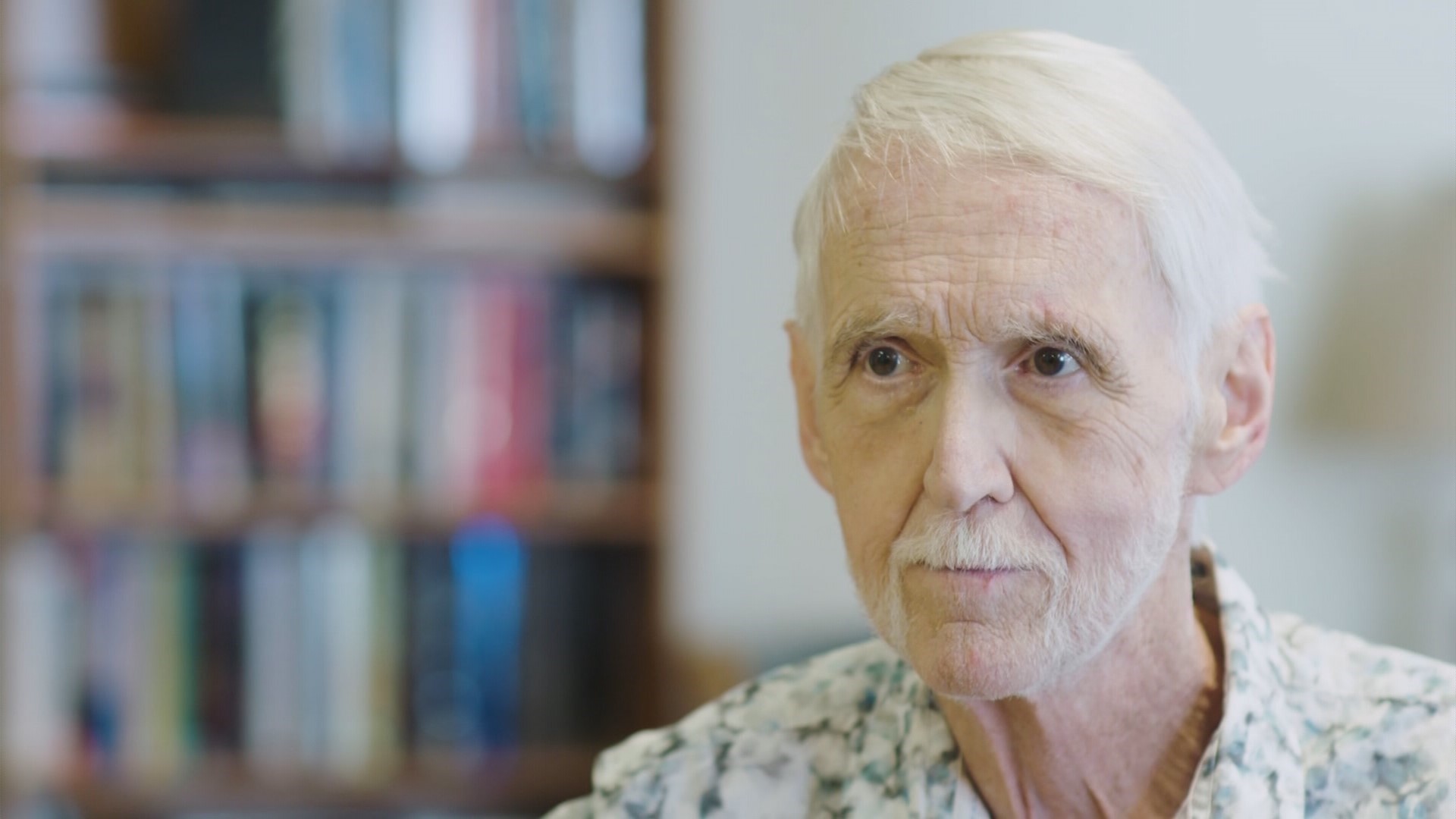For the best viewing experience of the KING 5 documentary “Bob’s Choice,” watch on YouTube here.
Bob Fuller said he chose to die with dignity, because he didn’t want to suffer. Nor did he want others to remember him suffering.
“It’s not the way I’ve ever lived my life,” he said.
Fuller, 75, was diagnosed with carcinoma of the tongue and oral pharynx. Eventually, the Seattle man says, the cancer would impact his swallowing and then it would end up suffocating him.
“Pain is inevitable with cancer, but suffering is optional. You don’t have to do it, and I choose not to,” Fuller said.
Washington’s Death with Dignity Act, which was the result of Initiative 1000, went into effect in March 2009. It allows terminally ill patients with less than six months to live to legally request lethal doses of medication to end their lives. Between 2009 and 2018, more than 1,500 people have chosen death with dignity in the state.
Washington is one of eight states, plus the District of Columbia, that have death with dignity laws.
Supporters of the act acknowledge it’s not for everyone but say it’s important to offer people a choice.
“Whether it’s a choice to engage in all heroic measures – absolutely if that’s what somebody chooses to do then they need to be able to do that,” said Don Desonier, a friend of Fuller’s. “Conversely if somebody realizes you know what, I’m done. You know it’s not worth it for my quality of life to be able to continue receiving the kinds of medical treatments that are needed when I can make a decision now, when I’m able to and end life on my terms and with dignity.”
Fuller decided to stop treatment on October 29. He had started to do chemotherapy and radiation but stopped nearly one-third of the way through treatment.
“It was killing me,” Fuller said. “I felt dead. I was in so much pain.”
Most of Fuller’s friends were supportive, including Reese Tahmalwash, Fuller’s caregiver and roommate.
“I can’t see wanting him to stay if it hurts so much,” Tahmalwash said.
The ‘singing nurse’
Fuller’s life brimmed of loving others and being loved. A recovering alcoholic who’s been sober for 35 years, Fuller sponsored more than 100 recovering alcoholics through Alcoholics Anonymous. He was instrumental in the LGBTQ community, running the voucher program with Peer Seattle, which offers support services.
Music was a big part of Fuller’s life. Fuller was one of the founding members of the Seattle men’s chorus, singing with the group from 1979 to 1984. He was also known as the “singing nurse” at King County Jail, because he was usually carrying a tune while at work.
“We knew you were on duty Bob,” he recalled coworkers saying. “We could hear you singing from a mile away.”
End of life planning
After Fuller made the decision to end his life, he picked a date for his death: May 10.
As the day approached, the cancer continued to eat away at Fuller. At the end of March, Fuller struggled to eat a bowl of oatmeal without pain. At one point in mid-April Fuller says he spat up blood for about four days.
“There was no blood before,” Fuller said. “That brings up feelings. I’ve taken care of patients who have bled to death. So that pushed a button.”
Fuller began determining the final details of his death. He planned a party for the day of his death and decided to take his medication at the end of the party.


A final celebration
Fuller said he lived with no regrets, but as he approached his death, there was still one more thing he wanted to do. Three days before his death, Fuller and Tahmalwash went down to the King County Courthouse to get a marriage license. The pair married in Fuller’s home on the morning of his party.
“For me, I’m just glad I’ve had someone who’s loved me to the end,” Fuller said.
The day of Fuller’s party, the room was packed with people dating back decades from his life. Friends hugged, kissed, and told Fuller how much he meant to them. Finally, Fuller made his way upstairs and changed into his pajamas. About 30 friends crowded into Fuller’s room to say goodbye.
Workers from End of Life Washington, which guides people in their final days, prepared Fuller’s medication. The four-part combination was mixed with Kahlua – “When in my life have I been able to say, ‘I’m only going to have one,’” Fuller joked – and he injected it into his feeding tube.
After Fuller’s eyes closed, friends surrounded his bed, singing him to an eternal sleep with the song “Amazing Grace.”
Resources
Find more information about Washington’s Death with Dignity law on the Washington State Department of Health’s website.
End of Life Washington helps guide people in planning for the final days of their lives. The non-profit organization helped Bob Fuller with his journey. If you would like more information about End of Life Washington, visit endoflifewa.org.
Check out our Reddit Ask Me Anything (AMA) on the story for answers to viewer questions about Fuller and Washington's law.


